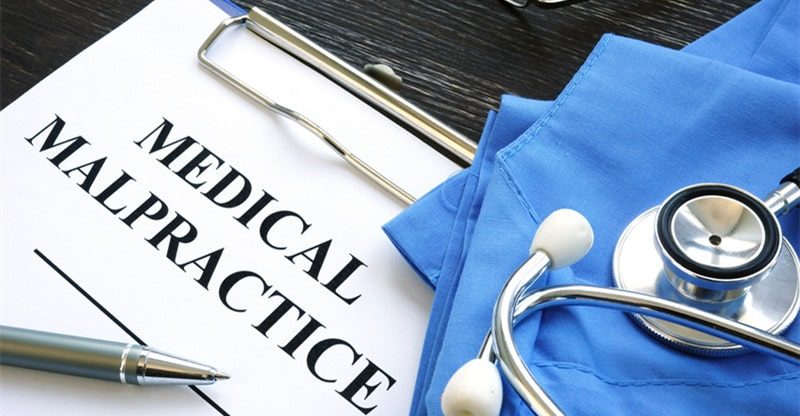How Does An Attorney Prove Medical Malpractice?
Receiving proper medical care and attention on a regular basis is very important. When you do receive regular care, you can be made aware of any health concerns and receive the support you need to recover from an illness as well as possible.
While doctors, surgeons, and other medical professionals will have the best intentions to provide great care, accidents, oversights, and mistakes can happen. If they do occur during a procedure, examination, or other form of medical care, it could be an example of medical malpractice.
In these situations, you could file a medical malpractice claim to receive support or reimbursement for any damages you may have incurred. When you do file a malpractice claim, it is important to remember that it can be a complex area of law. There are various examples of what could constitute a valid medical malpractice claim.
Further, if you have been a victim of malpractice, your attorney will likely need to prove a few different factors.
Examples of Medical Malpractice
Being a victim of medical malpractice can be a stressful situation. In many cases, malpractice could lead to health setbacks, inability to work, and an impact on your overall quality of life. There are various examples of situations that could constitute malpractice. Some of the most common forms of malpractice include the following:
• Surgical errors or providing unnecessary operations.
• Misdiagnosis or misreading laboratory results.
• Prescribing a dangerous medication or dose based on patient records.
• Not analyzing and incorporating patient health records.
• Discharging a patient too soon or not completing proper follow-up services.
How to Prove Medical Malpractice Took Place
There are clearly various situations that could constitute medical malpractice. However, actually proving that the healthcare provider was negligent and that you were a victim of malpractice can be challenging. There are various facts that will need to be proven in order for you to win a malpractice claim or reach a fair settlement.
Prove that you Had a Healthcare Provider Relationship
When you are looking to pursue damages under a medical malpractice claim, one of the first things you will have to do is prove that you had a relationship with the provider. The doctor-patient relationship will exist if they provide any form of service for you, or you have a signed agreement with them in place.
In either situation, it is assumed that you will receive the proper care that would be acceptable by the medical community. If you did not receive proper care, it could be an example of medical malpractice.
You Did Not Receive Proper Care
One of the most important parts of a medical malpractice claim that you will need to prove is that you did not receive proper care. Whenever you go in to see a doctor or receive any type of operation, it is assumed that you will receive proper care. If the doctor is negligent, made a mistake, or did not identify an illness that they should have it, it could be a breach of this duty of care.
To prove this, you may need to have your medical records examined by an expert witness that will be able to attest that negligence took place.
Poor Care Led to an Injury or Health Setback
While you will need to prove that you did not receive proper care, you also will need to prove that the poor care led to health setbacks. If a doctor made a mistake and you did not suffer any form of injury or loss because of it, you likely will not have a medical malpractice claim. However, if you can prove that the mistake led to further challenges, you will have a valid claim.
You Incurred Real Damages
Following any type of accident, you will also need to prove that you incurred real damages that had some form of expense. A medical malpractice claim can seek reimbursement for a variety of different types of costs. If you did not incur any actual damages, your claim will likely be denied. Some of the most common forms of damages included in a medical malpractice case will include the following:
• Additional medical costs due to poor care.
• Disability or disfigurement.
• Lost wages due to the inability to work.
• Mental anguish and pain and suffering.
When you are looking to collect damages due to medical malpractice, some costs are easy to identify. These include expenses such as medical bills, lost wages, therapy costs, or increased housing or transportation costs to accommodate a new disability.
Other costs, such as mental anguish and pain and suffering, can be harder to value but will frequently be included in medical malpractice claims. Reimbursement for these damages is often assessed based on the precedence of past similar cases.
Reasons to Hire an Attorney
If you have suffered health, financial, or personal setbacks as a result of a mistake or oversight provided by your healthcare provider, you could have a valid medical malpractice claim. If you do have a malpractice claim, hiring legal support is always a good idea. Your malpractice attorney can offer various services that will help ensure you are properly represented and receive fair support and compensation.
Your attorney will first work by fully evaluating your case and offering a consultation regarding whether you have a valid claim, if necessary evidence exists, and other factors to help decide whether you should move forward. The attorney can then handle all necessary filings, case and claim preparations, and negotiations with the other parties involved. While most cases are handled outside the courtroom, they could also offer support in a civil trial.
As you are evaluating your case and situation, working with experienced medical malpractice attorneys is always a good idea. When you are looking for legal support, the team with Wapner Newman can offer the guidance and representation that you need to understand your case and ensure you receive the support you deserve. This can also help free up your personal time and resources and allow you to recover from any health setbacks you have incurred.



